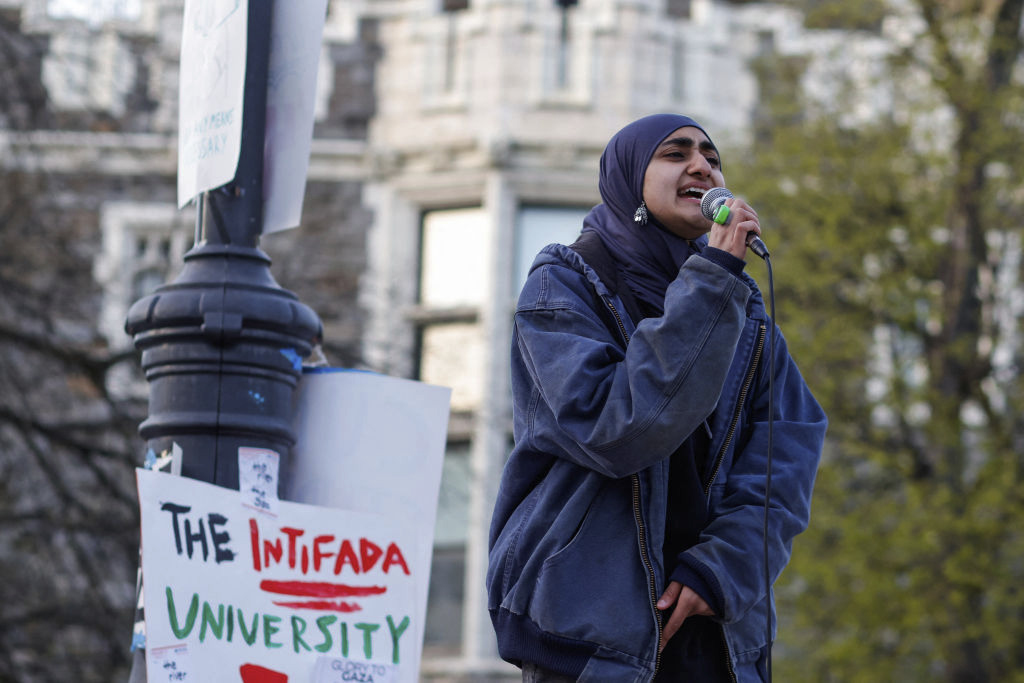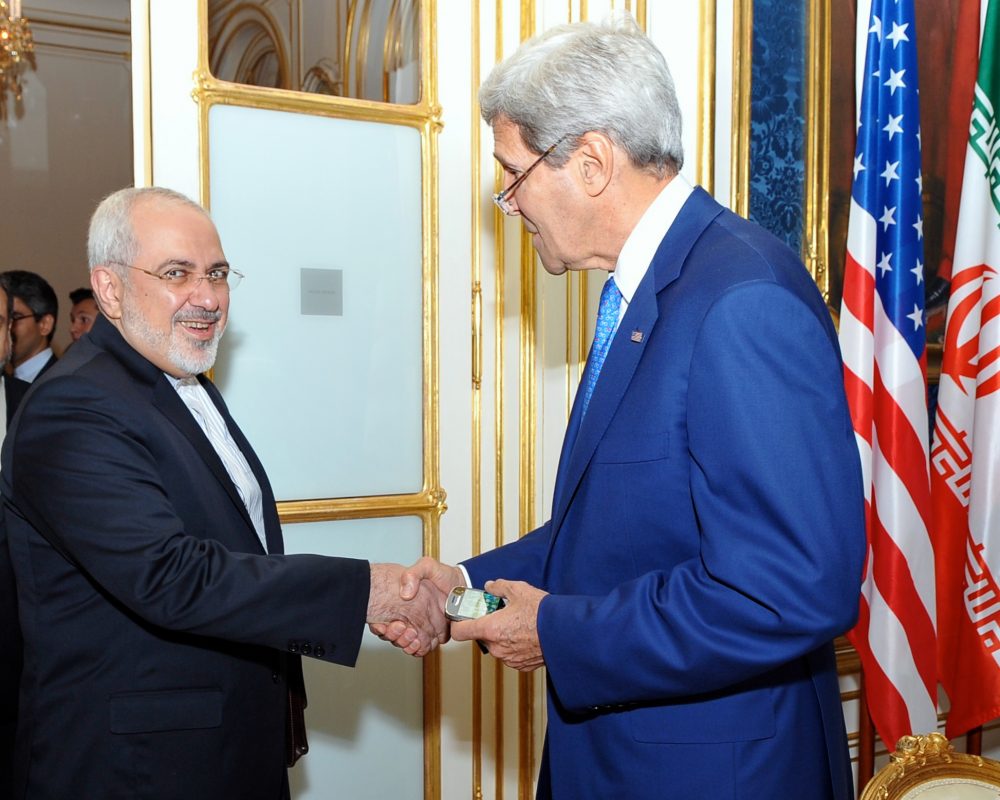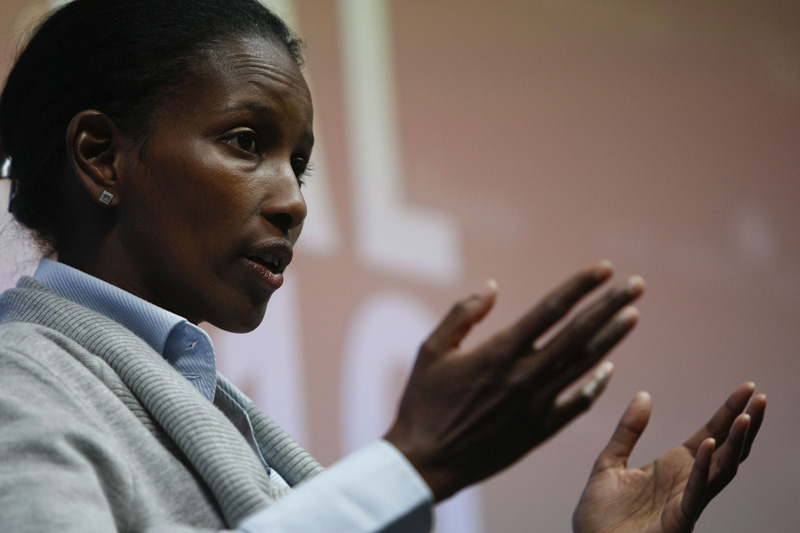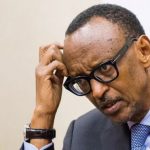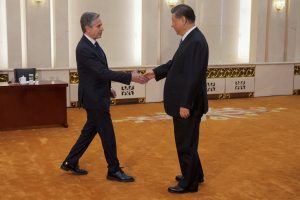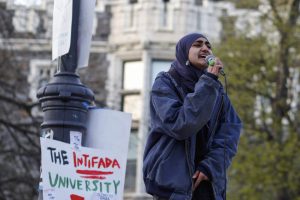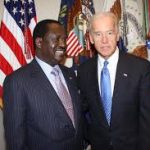On March 8, women abstained from work as part of the International Women’s Strike (IWS) – a grassroots feminist movement aimed at bringing attention “to the current social, legal, political, moral and verbal violence experienced by contemporary women at various latitudes.” But these positive goals were distorted by the inclusion of anti-Israel rhetoric in the platform of the IWS.
There are many countries and movements throughout the world that treat women as second-class citizens: Israel is not among them. Yet this platform singles out for condemnation only Israel, the nation state of the Jewish people. There is a word for applying a double standard to Jews. That word is anti-Semitism.
It is a tragedy that this women’s movement – which has done so much good in refocusing attention on important women’s issues in the United States — from gender violence, to reproductive rights and equal-pay – has now moved away from its central mission and gone out of its way to single out one foreign nation by calling for the “decolonization of Palestine.” Not of Tibet. Not of Kurdistan. Not of Ukraine. Not of Cyprus. Only Palestine.
The platform, which is published on IWS’ website under the headline “Antiracist and Anti-imperialist Feminism” also says: “we want to dismantle all walls, from prison walls to border walls, from Mexico to Palestine.” No mention is made of the walls that imprison gays in Iran, dissidents in China, feminists in Gaza or Kurds in Turkey. Only the walls erected by Israel.
Criticizing Israel’s settlement and occupation policies is fair game. But singling out Israel for “decolonization” when it has repeatedly offered to end the occupation and to create a Palestinian state on the West Bank and Gaza; and when other countries continue to colonize, can be explained in no other way than applying a double standard to Jews and their state.
Linda Sarsour, a Palestinian-American who helped organize the Women’s March on Washington in January, responded to criticism of the anti-Israel plank appearing in a feminist platform. In an interview with The Nation Sarsour said the following:
“When you talk about feminism you’re talking about the rights of all women and their families to live in dignity, peace, and security. It’s about giving women access to health care and other basic rights. And Israel is a country that continues to occupy territories in Palestine, has people under siege at checkpoints—we have women who have babies on checkpoints because they’re not able to get to hospitals [in time]. It just doesn’t make any sense for someone to say, ‘Is there room for people who support the state of Israel and do not criticize it in the movement?’ There can’t be in feminism. You either stand up for the rights of all women, including Palestinians, or none. There’s just no way around it.”
Sarsour was responding directly to an op-ed published by Emily Shire, the politics editor of the online newsite Bustle. In her piece published in the New York Times,
Shire asked why, increasingly, women have to choose between their Zionism and feminism. Shire wrote:
“My prime concern is not that people hold this view of Israel. Rather, I find it troubling that embracing such a view is considered an essential part of an event that is supposed to unite feminists. I am happy to debate Middle East politics or listen to critiques of Israeli policies. But why should criticism of Israel be key to feminism in 2017?”
Israel like every country including our own is far from perfect—and I and other supporters of Israel have been critical of its flaws—but its commitment to gender equality can be traced back to its Declaration of Independence, which states that Israel “will ensure complete equality of social and political rights to all its inhabitants irrespective of religion, race or sex.” As the only democracy in the Middle East Israel’s legal guarantee of rights has meant that women play crucial roles in all aspects of Israeli society. It elected the first woman head of government in history – Golda Meir – who was not related to a male political leader. There is no legitimate reason for singling Israel out for condemnation, as the platform does, based on a denial of “basic rights” to women.
Sarsour presents a Catch-22. Under her own all-or-nothing criteria, she herself cannot be pro-Palestinian and a feminist because the Palestinian Authority and Hamas treat women and gays far worse than Israel does. If Sarsour was concerned with addressing structural causes of all female oppression, she would mention the status of women in the PA-controlled West Bank where just a few months ago the names and photos of female candidates for the municipal elections were omitted, referring to the women instead as “wife of” or “sister of.” Sarsour would also call out the Hamas-controlled Gaza Strip, where the police are a law unto themselves who act as judge, jury and executioner of those who speak out against their oppression and misogyny. She would condemn the tolerance, if not acceptance, by so many Muslim countries of the “honor killings” and genital mutilation of women. Instead the IWS platform exploits the feminist cause in order to delegitimize and demonize only one nation: that of the Jewish people.
Nor does Sarsour address the fact that one of the organizers of the strike, Rasmea Odeh, was a member of the Popular Front for the Liberation of Palestine (PFLP), who was convicted and sentenced to life in prison by an Israeli military court for her role in a 1969 terror attack, which killed two university students and injured nine others, including several women, at a supermarket in Jerusalem. Odeh was later freed in a prisoner exchange but a subsequent case against her in the United States is ongoing.
This double standard is reflective of a broader trend in hard left politics. Increasingly, groups such as Black Lives Matter, MoveOn, Code Pink, and Occupy Wall Street have embraced intersectionality—a radical academic theory, which holds that all forms of social oppression are inexorably linked—as an underpinning to their anti- Israel activism. This type of selective ideological packaging has left liberal supporters of Israel in an increasingly uncomfortable position. On the one hand, they care deeply about causes such as women’s rights, criminal justice reform, income inequality, environmental protection and LGBT rights. On the other, they find themselves excluded from the groups that advance those very causes unless they agree to
delegitimize Israel and denounce Zionism as the national liberation movement of the Jewish People.
Addressing the structural causes of sexism in the United States will take more than reproaching Israel—it will require far-reaching legislative and grassroots action. By morphing the discussion about women’s rights into a polemic against Israel, the IWS makes progress of the feminist cause even more difficult. All decent people should continue to fight for the absolute equal status of women in society. But we must not be forced to become complicit in the promotion of anti-Israel bigotry as a pre-condition for supporting the broader feminist movement.
The real choice to be made now by all those who care about the feminist cause is whether to allow Sarsour and her radical anti-Israel allies to hijack the movement in support of their own bigoted views. The alternative is to maintain feminism’s focus on key issues that pertain to women and to call out countries and movements according to how seriously they violate women’s rights, rather than singling out the one Jewish democracy – Israel.










